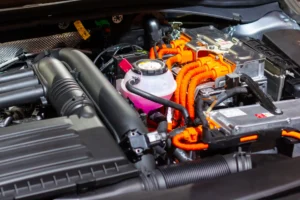Essential Car Maintenance Tips to Extend Your Vehicle’s Life
Introduction
Regular car maintenance is the key to extending your vehicle’s lifespan, improving safety, and preventing costly repairs. Whether you’re driving a brand-new car or an older model, following a consistent maintenance routine will keep your car running smoothly for years. In this comprehensive guide, we’ll share essential car maintenance tips every driver should know and explain why each step matters.
Why Car Maintenance Matters
A well-maintained car not only performs better but also retains its resale value. According to the Consumer Reports, vehicles with consistent maintenance records can last 200,000 miles or more. Skipping routine services increases the risk of breakdowns and expensive repairs down the road.
1. Check and Change Engine Oil Regularly
Engine oil lubricates moving parts and prevents friction that can cause severe damage. Check your oil level at least once a month and top it up as needed. Most vehicles require an oil change every 5,000 to 7,500 miles, but consult your owner’s manual for specific intervals. Learn more at the Car Care Council.
2. Maintain Proper Tire Pressure
Incorrect tire pressure affects fuel economy, handling, and tire lifespan. Use a tire gauge to check pressure monthly and before long trips. Rotate your tires every 6,000 to 8,000 miles to ensure even wear. For guidelines, check NHTSA Tire Safety.
3. Inspect Brakes and Replace Pads
Brakes are critical for safety. Listen for squeaking or grinding noises, which indicate worn pads. Most brake pads need replacement every 30,000 to 70,000 miles, depending on driving habits. For maintenance tips, see Bridgestone Brake Care Guide.
4. Replace Air Filters
Air filters keep dust and debris from entering your engine. A dirty filter can reduce fuel efficiency and engine performance. Replace your engine air filter every 12,000 to 15,000 miles and your cabin filter annually.
5. Monitor Fluid Levels
Besides engine oil, regularly check other fluids like transmission fluid, brake fluid, coolant, and windshield washer fluid. Low levels can lead to system failures or overheating.
6. Keep Your Battery in Good Condition
Battery failure is one of the most common reasons for roadside assistance. Check for corrosion on terminals and test your battery every six months. Replace it every 3–5 years or when it shows signs of weakness.
7. Pay Attention to Warning Lights
Dashboard warning lights indicate issues that need immediate attention. Ignoring them can lead to costly repairs. Use your owner’s manual or consult a mechanic to identify the problem quickly.
8. Schedule Regular Inspections
Even if your car seems fine, professional inspections catch hidden problems early. Most experts recommend a complete check-up twice a year for optimal performance.
Additional Tips to Extend Vehicle Life
- Wash and wax your car regularly to prevent rust.
- Avoid aggressive driving habits like rapid acceleration and braking.
- Use quality parts and fluids for replacements.
Conclusion
Proper car maintenance isn’t complicated, but it requires consistency. By following these essential tips—checking fluids, inspecting brakes, and scheduling regular service—you’ll extend your vehicle’s life and save money on costly repairs. Start building your maintenance schedule today and enjoy peace of mind on the road.
Read next: Top Car Safety Features Every Driver Should Have in 2025



